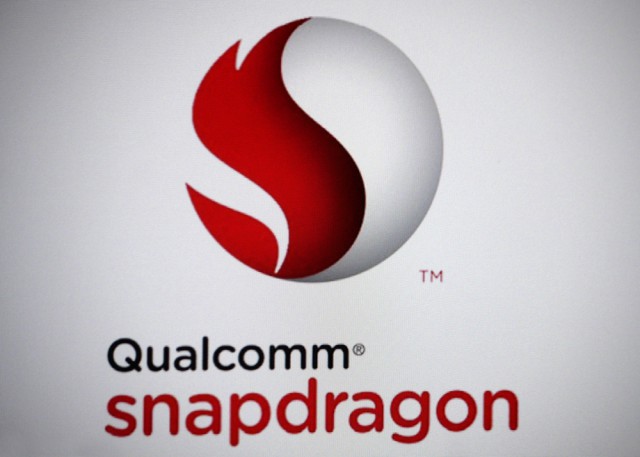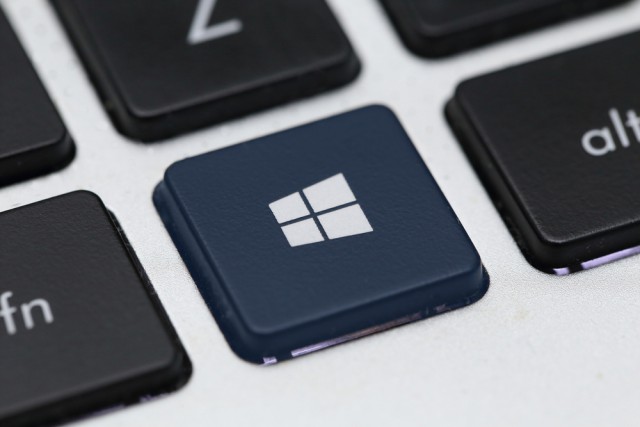
Google attracts criticism for hiding LGBTQ videos in YouTube's Restricted Mode
LGBTQ+ videos are effectively being censored by Google, say a number of high-profile YouTubers. The accusations surround YouTube's Restricted Mode and the belief that this is hiding videos with LGBTQ+ content from view, leading some to suggest that active censorship is taking place.
Google says that this limited mode exists to give people the option to avoid "videos that discuss more sensitive issues." The blocking is supposed to be triggered by "community flagging, age restrictions, and other signals," but YouTubers complain that even "innocent" videos that reference same-sex relationships, "queer perspectives" and other LGBTQ+ topics have been restricted.

Qualcomm: Snapdragon is more than a processor, it's a platform
Qualcomm no longer refers to Snapdragons as processors, but rather as a platform. It says it is changing the terminology because "Snapdragon is more than a single component, a piece of silicon, or what many would misinterpret as the CPU."
According to Qualcomm, the Snapdragon is an anthology of technology, composed of hardware, software and services. Looking at it that way, the word "processor" is unsuitable, and therefore had to be nixed.

Kdenlive is a powerful video editor for… Windows?
Kdenlive has been a popular non-linear video editor in the Linux world for a very long time, but the developers have also recently released a first Windows port.
The build doesn't skimp on functions: there's a full multi-track timeline and an array of effects and transitions to explore.

YouTube kills off video annotations in favor of mobile-friendly Cards and End Screens
Things are changing at YouTube. Having previously announced plans to drop 30-second unskippable ads from videos, Google has now also revealed that it will be dropping another annoyance -- the annotations that blight many videos and distract from the actual content.
Annotations have generally been used to link to related material, push merchandize and so on, but there has been something of an issue: annotations are not very mobile-friendly. Google says that Cards (which can be displayed at any point during a video) and End Screens (which, funnily enough, appear at the end) provide the same functionality as annotations, work on mobile, and are more user-friendly.

Super Mario Run for Android launches 23 March
It is quite some time since Super Mario Run arrived for iOS and took the world by storm. Right from the start there were questions about when the Android version would appear, and the delay from Nintendo saw the springing up of a batch of malicious fakers.
Pre-registration for the Super Mario Run for Android opened up in late-December, and now Nintendo has finally revealed the launch date for one of the most eagerly-awaited Android games of all time. The Android version of Super Mario Run will launch on 23 March -- just days away!

Facebook, Google and Twitter could face EU legal action for unfair terms and conditions, and failing to tackle scams
Having expressed concerned about privacy in Windows 10 and the scanning of Yahoo emails, the European Commission is now turning its attention to Facebook, Google+ and Twitter. The commission is concerned about a rising number of complaints from people who have fallen victim to scams on social media, and being subjected to terms and conditions that are incompatible with European law.
Having already written to the three companies back in November, the European Commission, along with EU consumer authorities, met to discuss how they will move forward. The commission says that if the proposals are unsatisfactory, "enforcement action" may be required.

Surprise! Windows 10 Creators Update Build 15061 for PC arrives on the Fast ring
Microsoft is in the final stages of preparing the Windows 10 Creators Update, and rolling out Insider Builds at an accelerated rate. On Tuesday, it released Build 15058 for PC, followed by Build 15060 yesterday.
And today, barely giving anyone the chance to install the last build, let alone test it, Microsoft rolls out yet another new update. Like the previous two releases, Build 15061 is PC only. Microsoft was hoping to release a Mobile build this week but was prevented from doing so thanks to a pesky blocking bug.

Huawei MateBook Windows 10 PCs and MediaPad Android tablets get price cuts
Huawei isn't a very well known brand in the USA, but it should be -- and probably will be. The Chinese company makes very elegant products, such as smartphones, tablets, and PCs. In fact, its MateBook portable was my pick for best Windows 10 device of 2016. Why? It is beautiful, fanless, and affordable. Seriously, it is an amazing machine with a gorgeous screen.
Today, Huawei announces some big price cuts for the MateBook, but the savings don't stop there. In addition to its Windows 10 portable, the company also shares some great deals on its MediaPad Android tablets too. Best of all, the sales can be had at quality retailers, such as the Microsoft Store, Newegg, and Amazon.

Riot Isolator is a versatile but quirky security toolkit
Riot Isolator is an unusual application which offers a host of powerful privacy and security tools in a single free package.
The program should normally be installed to deliver the best protection, but there’s an option to run it stand-alone, convenient for testing.

Amazon makes it cheaper to build and host Alexa skills
Thousands of Alexa developers can now build and host most Alexa skills for free using Amazon Web Services (AWS), thanks to a newly released Amazon program.
Previously, developers have had at their disposal the AWS Free Tier, offering a million AWS Lambda requests and a total of 750 hours of Amazon Elastic Compute Cloud (Amazon EC2) -- monthly, for free. However, exceeding these limits also meant monthly fees.

Philips launches E14 Hue bulbs
I never thought I'd be talking passionately about lighting, but I hate E14 bulbs. Not only do most options have low power but the selection is limited as well -- at least when compared against E27 bulbs. With the launch of new Hue bulbs, however, Philips is trying to change that.
Referring to it as the "candle light bulb", the new smart E14 Hue lights that Philips just announced were "one of the most requested products by Philips Hue customers." And it's easy to understand why, as the Dutch company says that they're used in more than 80 percent of households worldwide.

How big data is being used and what's holding it back
Big data has been something of a buzz word in IT and in enterprises in recent years, but while many people are enthusiastic about its potential there are fewer examples of its tangible benefits.
Canadian printing company Colourfast has produced an infographic looking at what benefits big data is actually bringing to companies.

Cyber security spending to reach $90bn in 2017
This year, the cyber-security focus is shifting from prevention only, into detection and response territory. This is according to a new Gartner report, which also says cyber-security spending will hit the $90 billion mark this year.
That’s actually a 7.6 percent increase year-on-year. Spending will keep on growing, Gartner says, up to $113 billion in 2020.

What hacking RSA access points teaches us about enterprise VPNs
News that multiple access points at the RSA security show may have been hacked made for great headlines, and that’s about it. The attack poses little actual risk to most corporate users, but it does underscore the importance the cloud can play in corporate VPNs.
Security researchers at Pwnie Express discovered the attack when scanning the conference floor. They found a rogue access point posing as a known, trusted network -- what’s called an EvilAP attack. In an EvilAP attack, the attacker impersonates a known wireless network by intercepting the SSID a user’s device discloses when searching for a WLAN. The attack is available from several hacking tools, including KARMA.

Pakistan risks privacy concerns by asking Facebook and Twitter to identify users suspected of blasphemy
Pakistan is seeking help from Facebook and Twitter to help execute its incredibly strict blasphemy laws. Anyone found guilty of insulting the Prophet Muhammed, or Islam in general, risks being sentenced to death, and the country is keen to track down offenders both at home and abroad.
The two social networks have only been asked to identify Pakistanis, but the move is likely to raise concerns about privacy. Of equal concern will be not only what is deemed to be blasphemous, but who makes that judgement -- particularly when Pakistan is seeking to identify offenders in other countries.



